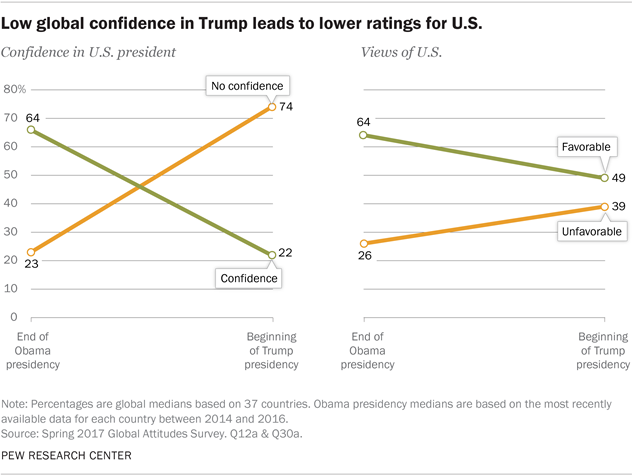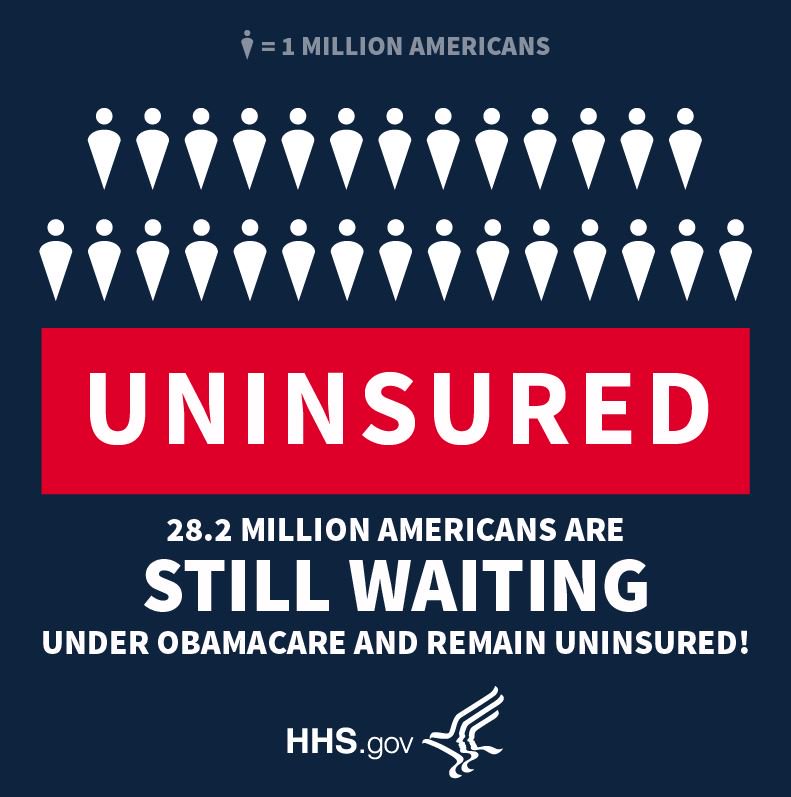Conservatives often take a narrow view of the value of health insurance: they focus on catastrophic events such as emergencies and sudden, high-cost illnesses. But the path of life isn’t one of steady health punctuated by brief crises. Most of us accumulate costly, often chronic health issues as we age. These issues can often be delayed, managed, and controlled if we have good health care — and can’t be if we don’t.
- Atul Gawande, "How the Senate's Healthcare Bill Threatens the Nation's Health"
The New Yorker (6-26-2017)
This week's featured post is "Yes, TrumpCare Will Kill People". And I'm trying out a new format with "Three Misunderstood Things". This week's three things are the Masterpiece Cakeshop case, Mitch McConnell's agenda, and the impact of minimum-wage increases on employment.
This week everybody was talking about the Senate's failure to pass TrumpCare

Mitch McConnell's announced plan had been to pass the bill Thursday, but instead the Senate adjourned for the 4th of July holiday without voting. Why? Widespread uneasiness about the bill got suddenly worse on Monday when the CBO analysis came out: TrumpCare would result in 15 million more people without health insurance 2018, and 22 million more by the end of 2026. (28 million uninsured under current law; 49 million under TrumpCare. The extra million is due to round-off error.) A subsequent CBO report on Thursday analyzed Medicaid spending after 2026: Under the Senate bill, Medicaid spending would be 26% less (than current-law projections) in 2026, and would continue losing ground afterward, to be 35% less by 2036. The CBO didn't estimate what this would do to the number of people Medicaid covers.
In short, the CBO verified critics' description of the bill's effects: Over the next decade, it takes more than a trillion dollars out of the healthcare system (Medicaid and ObamaCare insurance subsidies) and uses about half that money to cut taxes (that mainly affect the rich). In other words, it's a net redistribution of wealth from poorer, sicker people to richer, healthier people.

This reverse-Robin-Hood framing of the bill has been hard for Republicans to counter, because they haven't identified any other purpose bill serves. Pro-TrumpCare arguments within the Republican caucus seem to revolve around the idea that they have to repeal ObamaCare because they said they would and big donors will be angry if they don't.
No wonder voters aren't responding well: A Quinnipiac poll finds that 6% of Americans approve of the Republican bill strongly; 9% approve somewhat; 10% disapprove somewhat; and 48% disapprove strongly. An NPR/PBS/Marist poll got a similar result: 17% approve of the Senate bill while 55% disapprove.
Could it still pass? Sure. The House version looked dead in March before passing in May. Something similar could happen in the Senate. 538 and TPM go through Republican holdouts one-by-one and discuss which ones are most likely to come around eventually. It takes three Republican senators to kill the bill; the three most likely to do it are Dean Heller, Susan Collins, and Rand Paul.
What makes McConnell's job difficult is that any conservative concessions big enough to win over Paul are likely to lose moderates like Lisa Murkowski and Shelley Moore Capito, while moderating concessions to Heller and Collins are likely to lose Mike Lee and Ted Cruz. But McConnell is good at this kind of thing, and it's not impossible. If you're actively resisting this bill in some way, don't let up.
Why McConnell can't just skip ahead to his next agenda items (the FY2018 budget and tax reform) and come back to TrumpCare later is discussed in this week's "Three Misunderstood Things".
Senator Sasse has suggested (and Trump has endorsed) an idea that Republicans abandoned some while ago: Just go ahead and repeal ObamaCare, promising to replace it with something before the repeal takes effect in a year. But Republicans have had seven years to come up with their ObamaCare alternative. If they haven't agreed on one yet, why would anybody bet the farm on them coming up with one in a year?
Department of Shamelessness. Senators may not know how to defend TrumpCare, but the White House does: with total BS. Sean Spicer tweeted this graphic from Trump's Department of Health and Human Services:
All I can figure is that Spicer thinks those 28.2 million people's main problem is loneliness: That's why his boss's bill would send 22 million more Americans to keep them company.
David Frum represents the Eisenhower-Ford type of conservative who used to be in the Republican mainstream, but now has no political home: He wants to pursue the public good through conservative methods, and is not opposed to government on principle, but is skeptical of ambitious programs and wants to make sure that every taxpayer penny is well spent. His article on reforming ObamaCare is part of the intelligent debate that America is probably having in some alternate universe.
The other side of that intelligent debate would be this fix-ObamaCare program from the Center for American Progress.
Public health policy actually matters: American women die during childbirth at about three times the rate of women in many other countries -- except in California.
and the first public evidence of collusion between the Trump campaign and Russian hackers
The Wall Street Journal published two scoops by Shane Harris, which are behind the WSJ paywall (I'm not a subscriber), but have been discussed in detail many other places, like Washington Monthly and Vox.
The central figure in the report is Peter Smith, described by Washington Monthly as "a recently deceased long-time adversary of the Clintons who helped finance the Arkansas Project back in the 1990s". Smith believed that Hillary Clinton's deleted emails (the ones Trump "joked" about asking the Russians to hack and release) would contain damaging information, and that Russian hackers might have them. So he tried to make contact with Russian hackers so that he could obtain and release those emails. Smith represented himself as being in contact with several major Trump campaign people, including Michael Flynn, Steve Bannon, and Kellyanne Conway.
The most extensive available-for-free account is a 33-minute discussion between Harris and Benjamin Wittes on the Lawfare podcast.
Also on Lawfare is a corroborating account from computer-security CEO Matt Tait, "The Time I Got Recruited to Collude With the Russians". Tait was known to be investigating the Russian hack into the DNC when Smith tried to recruit him.
Over the course of our conversations, one thing struck me as particularly disturbing. Smith and I talked several times about the DNC hack, and I expressed my view that the hack had likely been orchestrated by Russia and that the Kremlin was using the stolen documents as part of an influence campaign against the United States. I explained that if someone had contacted him via the “Dark Web” with Clinton’s personal emails, he should take very seriously the possibility that this may have been part of a wider Russian campaign against the United States. And I said he need not take my word for it, pointing to a number of occasions where US officials had made it clear that this was the view of the U.S. intelligence community as well.
Smith, however, didn’t seem to care. From his perspective it didn’t matter who had taken the emails, or their motives for doing so. He never expressed to me any discomfort with the possibility that the emails he was seeking were potentially from a Russian front, a likelihood he was happy to acknowledge. If they were genuine, they would hurt Clinton’s chances, and therefore help Trump.
... Smith and his associates’ knowledge of the inner workings of the campaign were insightful beyond what could be obtained by merely attending Republican events or watching large amounts of news coverage. But one thing I could not place, at least initially, was whether Smith was working on behalf of the campaign, or whether he was acting independently to help the campaign in his personal capacity.
Tait still has no direct proof, but eventually became convinced that Smith's group "was formed with the blessing of the Trump campaign." Documents he saw mentioned the same people Harris identified -- Flynn, Bannon, Conway -- plus some other lesser-known Trump-campaign people.
it’s certainly possible that he was a big name-dropper and never really represented anyone other than himself. If that’s the case, Smith talked a very good game.
None of this is Trump holding a smoking gun. But it does demonstrate why the investigation needs to continue.
One reason to believe this story is that the case put forward by Trump's defenders has changed in recent weeks: They used to claim that talk of collusion was just fantasy, and that the whole investigation is a "witch hunt". (Why congressional committees chaired by Republicans would participate in such a witch hunt has never been explained.) But lately they've added another line of defense: So what if Trump did collude? If that message change is being coordinated by the White House, it could indicate that they expect other shoes to drop.
and Trump's Muslim ban
Just before going on summer break, the Supreme Court narrowed the injunction against the Trump executive order "which bars the issuance of visas from six majority-Muslim countries for 90 days and halts refugee resettlement for 120 days". They won't decide whether it's constitutional until the fall, when the whole question might be moot, but in the meantime the injunction only applies to "anyone with a 'bona fide relationship' to an American or an American organization." In other words, if you have a job offer from an American company or have been accepted to a U.S. university, or if you're visiting a very close American relative, you can still come, but otherwise not.
The implementation of this order began Thursday, and it's already kind of a mess. The administration decided to define "close family" so narrowly that grandparents didn't count, and to deny that fiance is a bona fide relationship. So it's all going back to court anyway.
To me, it looks like the Court has done something crafty: I always thought the order was a trial balloon. Trump doesn't really care all that much about those specific countries for that length of time, but if that order is constitutionally OK, then we'll see much more draconian orders later. The goal is to fulfill Trump's campaign pledge of a Muslim immigration ban. If that's the case, then the issue won't be moot by the fall, but the administration will have to have shown more of its hand.
but we need to watch the Election Integrity Commission
Since November, Trump has been very sensitive about the fact that 2.8 million more voters chose Hillary Clinton than him, which is why he has pushed the fantasy that 3-5 million votes were illegal. Or, as Politifact pointed out:
Trump has made repeated claims about massive voter fraud and election rigging, which we’ve debunked again and again and again and again and again and again and again (and we debunked a claim by his spokesman Sean Spicer).
As long as this is just Trump and his fans choosing to believe whatever makes them happy, you just have to shrug. Why should this issue be different from all the others? But unfortunately, this particular bit of ego-defense ties in with a long-term Republican effort to push marginal voters away from the polls by requiring IDs not everyone has, purging voter-registration rolls, and trying to intimidate voters who don't understand their rights.
Leaders in that effort are now on the Election Integrity Commission, which is technically headed by Vice President Pence, but is managed day-to-day by vice-chair Kris Kobach. Wednesday, Kobach sent a letter to the secretaries of state in all 50 states, asking for a huge amount of voter information, most of which is not available to the public. The goal is probably to do a national version of something Kobach has already been doing on a state-by-state level.
From his perch in Kansas, Kobach presides over the Interstate Crosscheck System, a fatally—and some would say, deliberately—flawed data-sharing system notable for its ability to knock eligible voters off the rolls without their knowledge.
Another problem is that a federal aggregation of such information would be "a gold mine for hackers".
Technical experts say the voter data that the commission wants to assemble would quickly become a single treasure trove for cyber criminals and foreign intelligence services. Identity thieves could use information such as addresses, birth dates and the last four digits of Social Security numbers for digital impersonations, and foreign spies could use it to fill out dossiers on Americans they hope to blackmail.
Fortunately, a large number of states are refusing to respond. Oddly, one of the secretaries of state who is dragging his feet is the one from Kansas -- Kobach himself.
and you also might be interested in ...
Pew Research Center regularly polls opinions about America in other countries. Here's the recent trend.

The results broken down by country are also interesting. Asked about "confidence in the U.S. president to do the right thing regarding world affairs", European confidence crashed when Trump replaced Obama. In Germany, for example, 86% had confidence in Obama, but only 11% have confidence in Trump. Canada (83%/22%) and Australia (84%/29%) showed smaller, but still quite large, losses of confidence. Jordanians (14%/9%) don't put much stock in either of them, but slightly prefer Obama. In all, 35 of the 37 countries surveyed have less confidence in Trump than they had in Obama.
But then there's an obvious question: Which two trust Trump more? By a small margin, Israel (56% Trump, 49% Obama). But the sole country where confidence in the U.S. president has skyrocketed is -- wait for it -- Russia (53% Trump, 11% Obama). Mordor was not surveyed.
The science division of the White House's Office of Science and Technology Policy is now empty. The last of the Obama administration's nine staffers are now gone and have not been replaced.
Am I crazy, or is Nebraska Senator Ben Sasse positioning himself for a primary challenge against Trump?
My favorite line in the Hamilton soundtrack is when Hamilton and Lafayette meet again at Yorktown and simultaneously say, "Immigrants -- we get the job done." That turned into a whole song on the Hamilton Mix Tape, and now there's a video.
I'm trying not to pay too much attention to Trump's gratuitously offensive antics, because, well, we've known for a long time that our president is a bullying sexist asshole. (I use asshole in the technical sense defined by philosopher Aaron James.) But if somehow you haven't already heard about this week's acting out, you probably should.
First there were his tweets about MSNBC morning host Mika Brzezinski -- CNN wanted to talk about virtually nothing else Thursday evening. Various people, including Republicans in Congress, criticized him for it, and Mika and cohost-and-husband-to-be Joe Scarborough wrote a response in The Washington Post, for all the good that does. I'm reminded of a quote frequently attributed to George Bernard Shaw, but apparently said by Cyrus Ching: "Never wrestle with a pig. You both get dirty, and the pig likes it."
Then he retweeted a video some supporter had edited (from a wrestling broadcast before he was president) of Trump tackling a guy outside a wrestling ring and punching him. The guy's head has been replaced with a CNN logo. CNN referred to it as "juvenile", and the White House denied that the President was encouraging violence against reporters, using the typical bully's excuse that he was being "funny".
I'm kind of in the same place as Seth Meyers.
[embed]https://www.youtube.com/watch?v=7kWL8rgxqV8[/embed]
Rachel Maddow's POV also has merit: Why let Trump distract us from his bad news, like all the stuff listed above?
and let's close with something peaceful
If you're feeling stressed, spend some time contemplating these images of cats resting on Buddha statues. (Don't miss the tiger.)

/cdn.vox-cdn.com/uploads/chorus_asset/file/8781181/BCRA_final_.png)

No comments:
Post a Comment